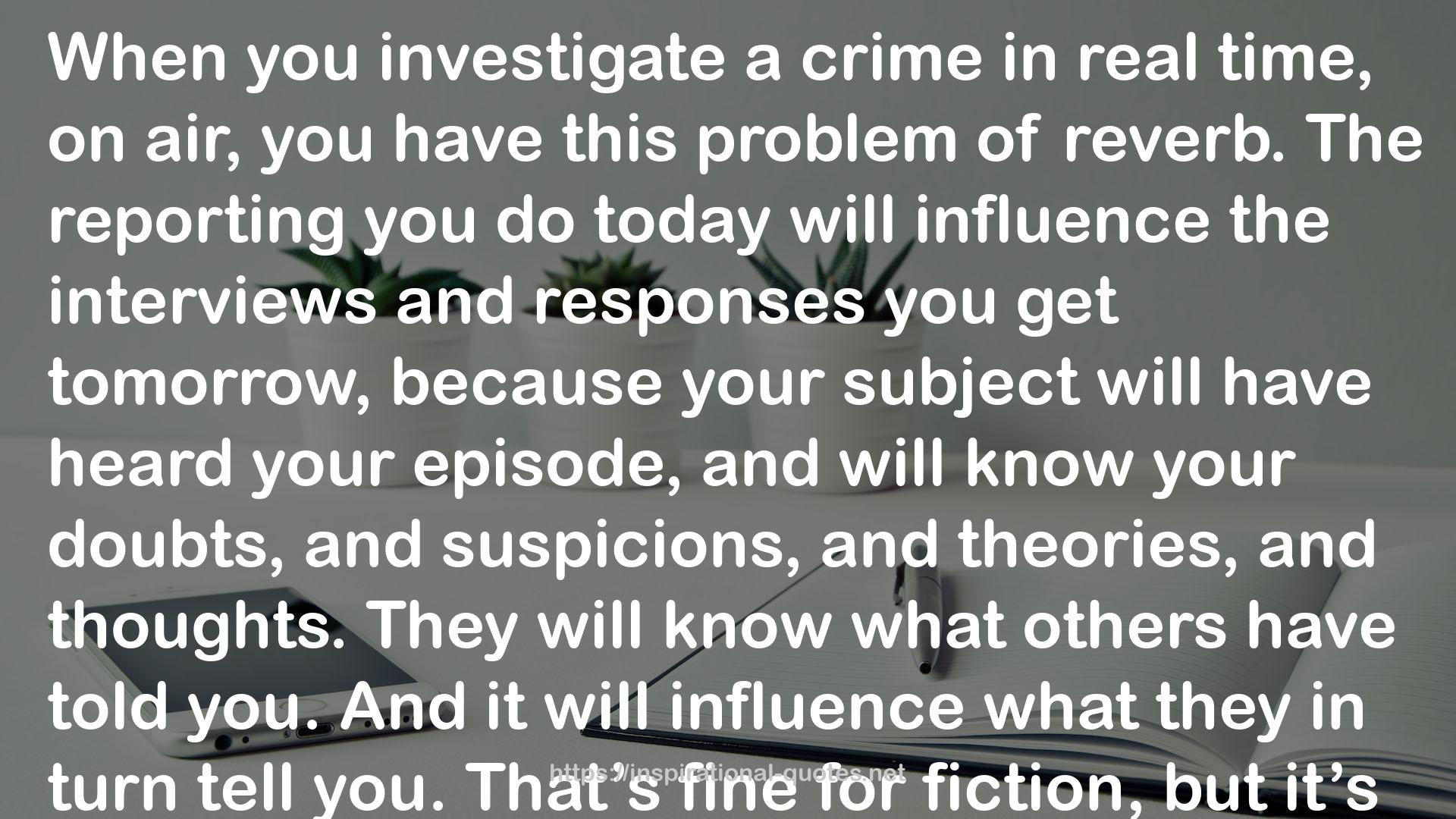" When you investigate a crime in real time, on air, you have this problem of reverb. The reporting you do today will influence the interviews and responses you get tomorrow, because your subject will have heard your episode, and will know your doubts, and suspicions, and theories, and thoughts. They will know what others have told you. And it will influence what they in turn tell you. That’s fine for fiction, but it’s a serious problem from a journalistic standpoint, the telling of a story influencing the story as it’s unfolding. It’s bait and switch. It’s unfair to the listener. You have your footprints and fingerprints all over the story in a very postmodern way. The risk with that—the reason news organizations don’t do it—is that you’ll find inconsistencies. You’ll find people lied to you. You’ll find you overlooked a piece of information, and you may have to reassess or revamp your story. I’m not saying it’s unethical per se, just that there are these potential pitfalls.—Mark Pattinson, journalism professor, on the ethics of true crime podcasting "
― Loreth Anne White , Beneath Devil's Bridge
